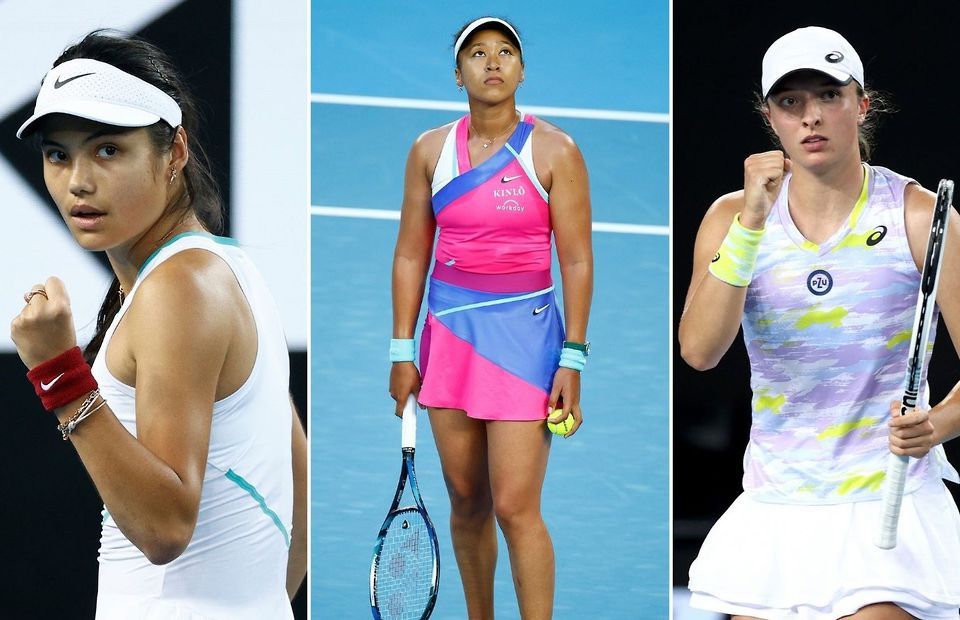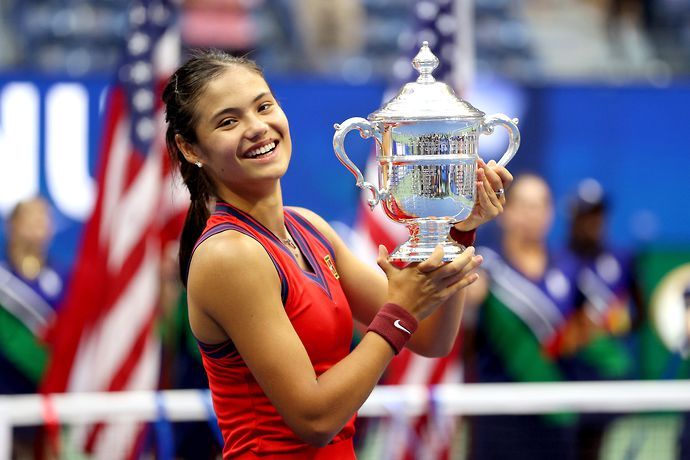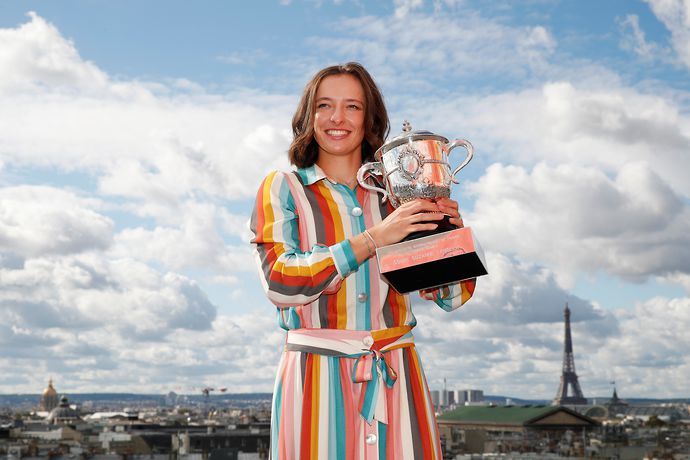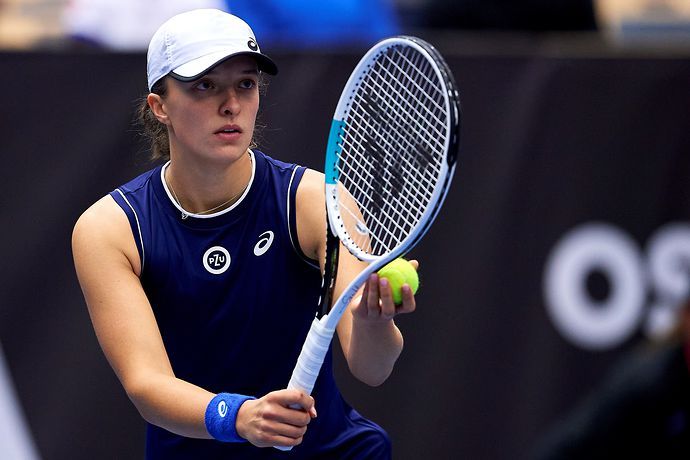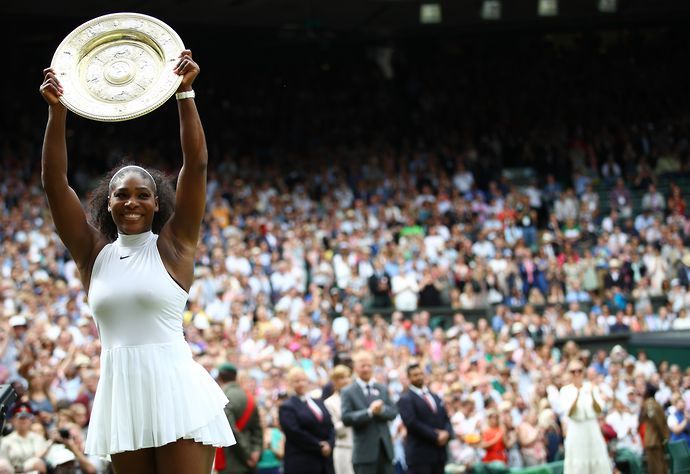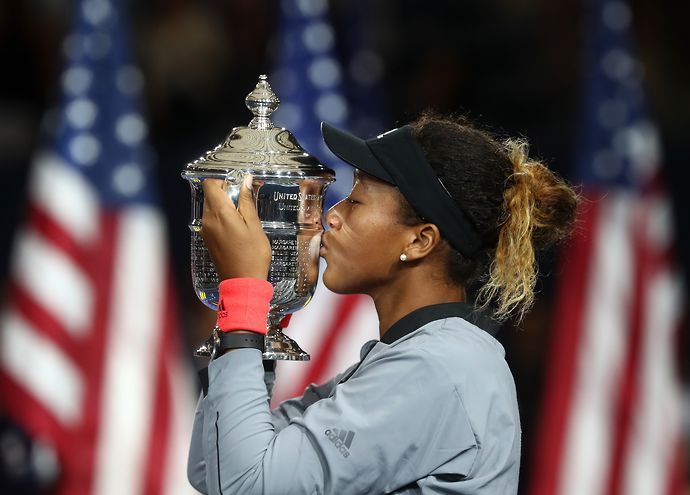Tennis is one of the leading sports when it comes to equal opportunities, prize money, and growing young talent.Over the years we have seen rising stars take the court by force and assert themselves as some of the best in the world. Particularly of late, a new era of teenage trailblazers have defied the odds stacked against them and gone on to become Grand Slam champions.But after basking in the glory of their success, these young players have quickly become the brunt of heavy criticism when results haven't gone their way. While expectations may soar, raising the bar so high at such an early stage in a player's career can negatively impact their future performances and become detrimental to their mental state.Emma Raducanu is the most pertinent example of this from the last 12 months.
Unrealistic pressure
Raducanu's breakthrough year was a phenomenon. After making her WTA Tour debut in June at the Nottingham Open, the Brit went on to reach the round of 16 at Wimbledon. She then embarked on her astonishing run at the US Open, where she won her first Grand Slam title.
Raducanu's success at Flushing Meadows propelled her onto the spotlit road laden with awards, sponsorships, and lucrative ambassadorial deals.
However, since her US Open triumph, the new British number one has failed to make it past the quarter-finals in any tournament.
Criticism has come at Raducanu thick and fast. She has been labelled a 'one-hit wonder' and accused of being distracted by her new-found fame.
Those firing such comments at the British star are forgetting two extremely important things — she is still just 19 years of age and has only been competing professionally for less than 12 months.
Even during her Grand Slam debut at Wimbledon, Raducanu was accused of lacking mental resilience when she was forced to withdraw due to breathing problems.
After reaching the quarter-finals of the Great Britain ITF 01A, pressure was seemingly already on the teenager to dominate her first ever Grand Slam, despite having next to no experience at a professional level.
Rising from 366th in the world to 22nd in the space of three months demands respect.
She has since climbed a few more places and sits 18th in the world rankings, and looks set to soon break the top ten, but this achievement seems to have been forgotten in the midst of a few disappointing tournament runs.
How it affects performances
Iga ÅšwiÄ…tek is another player who rose to stardom at a young age and faced the negative aftermath. She was just 19 when she won the French Open in 2020, and became the first Polish player in history to win a Grand Slam title.
ÅšwiÄ…tek recently shed light on the harsh reality of the pressure that comes with finding success as a young player.
"After winning a Grand Slam you might think 'I can now be happy for the rest of my life' but it is totally the opposite to that. I wasn't aware it would be like that," she wrote in her column for BBC Sport.
"I expected a lot from myself and wanted to show people that I could play like that all of the time. It was kind of impossible."
The 20-year-old admitted there was "a rush" to reach the same level as her title-winning performance at Roland Garros.
"Winning a Grand Slam is great but I think at my age it interrupted the peaceful process of growing up and developing my game."
ÅšwiÄ…tek won two WTA Finals after her success at the French Open, but failed to go beyond the quarter-finals when it came to defending her title in Paris.
She has stressed the importance of keeping expectations level and not setting unrealistic targets, something supporters and viewers should also endeavour to practice when it comes to young players.
Avoiding the Serena Williams comparison
Thanks to the legend that is Serena Williams, tennis fans have enjoyed decades of phenomenal performances.
With 23 Grand Slam titles to her name, Williams will go down in history as one of, if not the best women's player to grace the court.
However, the 40-year-old is on her own pedestal completely. Any comparison between Williams and a young, up-and-coming player is unfair, if not impossible.
The US star's glittering career has become almost an anomaly. Her success is unprecedented. Even Margaret Court, who has a record 24 Grand Slam titles, won 13 of these before the Open Era began.
In the years we have been treated to Williams' brilliance, expectations have run wild and the bar she has set has become the expectation for all future female tennis stars.
Expecting every good, or even world class player to recreate this legendary portfolio is beyond the realms of unrealistic. Williams has become tennis' exception, as opposed to its rule.
Naomi Osaka, who beat the court queen at just 20 years old to win the US Open, was tipped to be the 'new Williams'.
The Japanese star has won four Grand Slam titles and following her break from the sport last year, remarks are already being made over whether she will ever lift a major trophy again.
It was only seven months ago that Osaka withdrew from the French Open to take care of her mental health. She commented on how press conferences can often instil doubt in a player's mind and can be perceived as being kicked while already down following a defeat.
The extreme assumption of continued success creates immense, unnecessary pressure that risks causing the collapse of a promising young player. There are decades left in these youngsters' careers, meaning we have years to watch them grow and flourish.
Their journeys may well take them to exceptional new heights, but they may also never win a Grand Slam again. Regardless of the outcome, talent should be appreciated and moments cherished while we have them.














